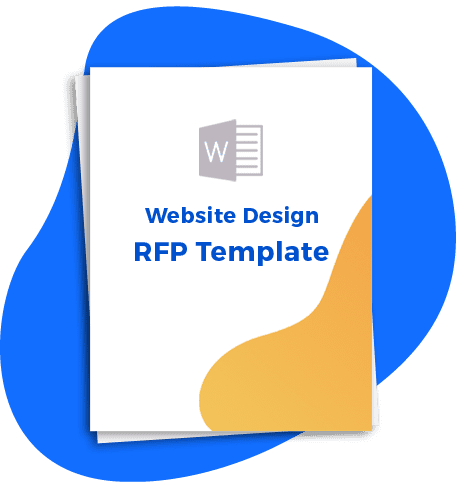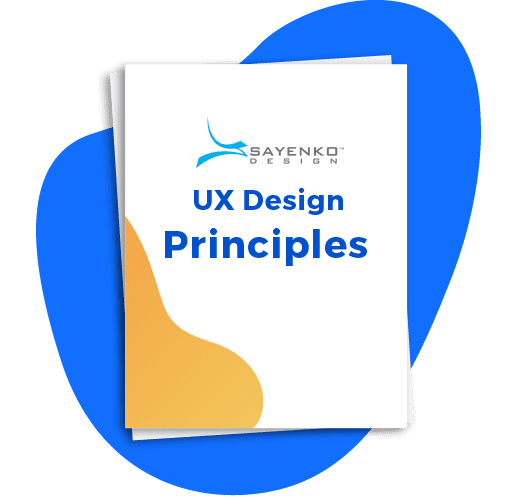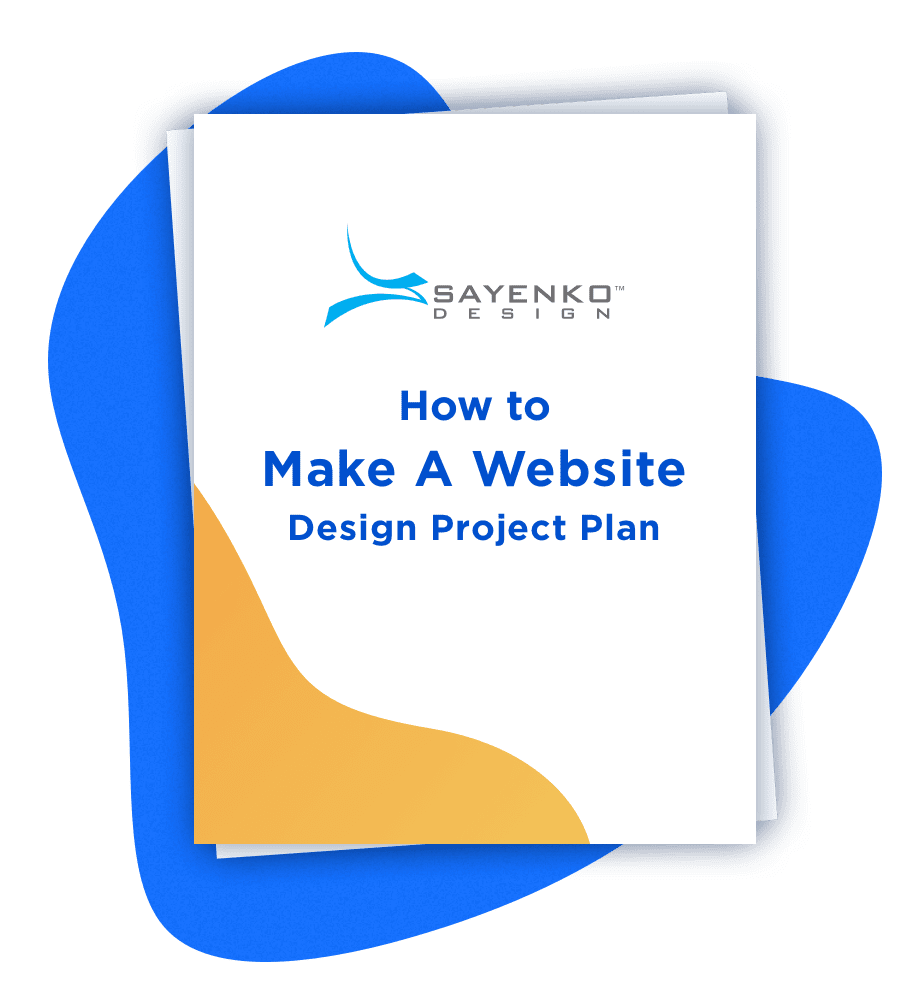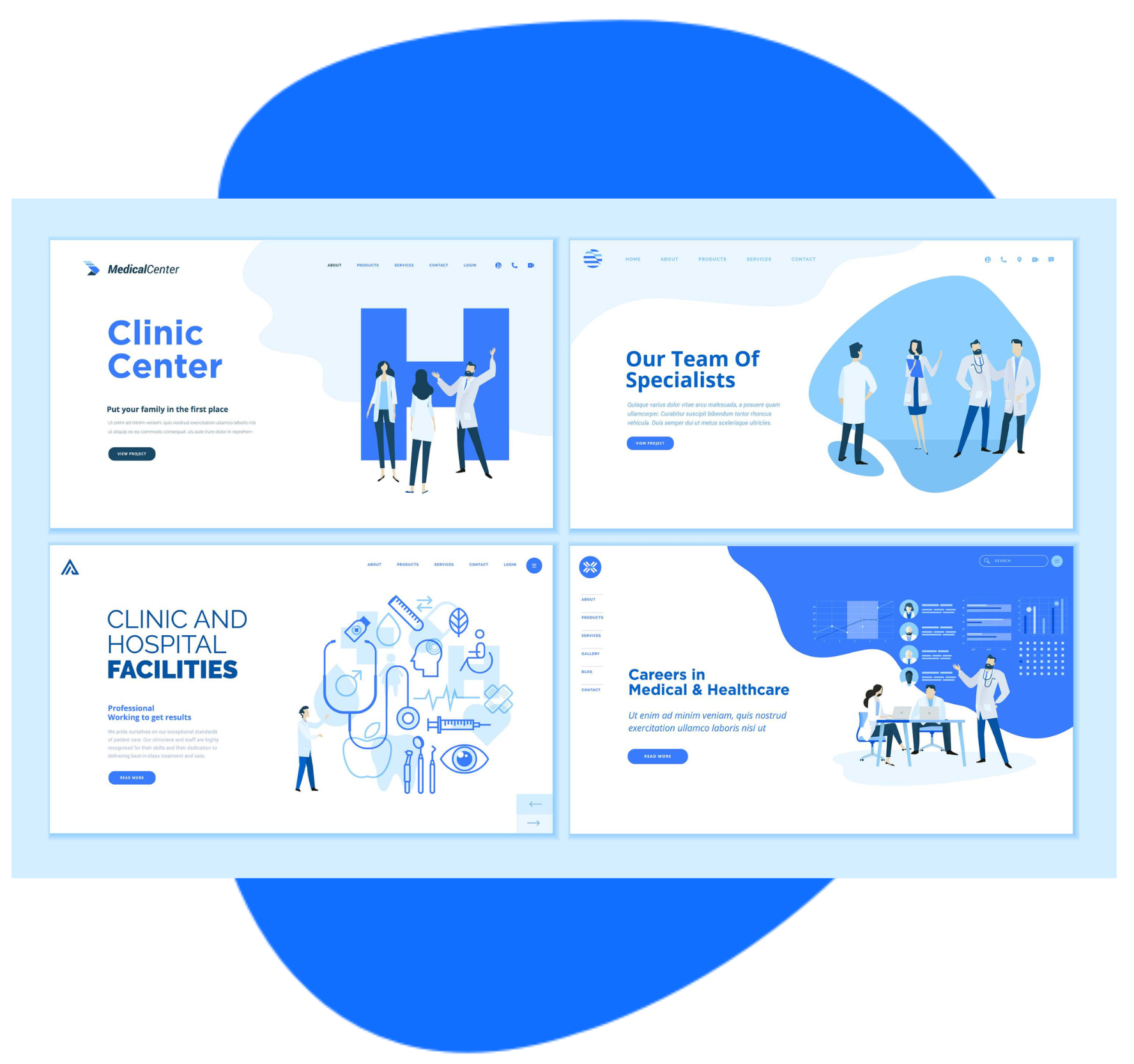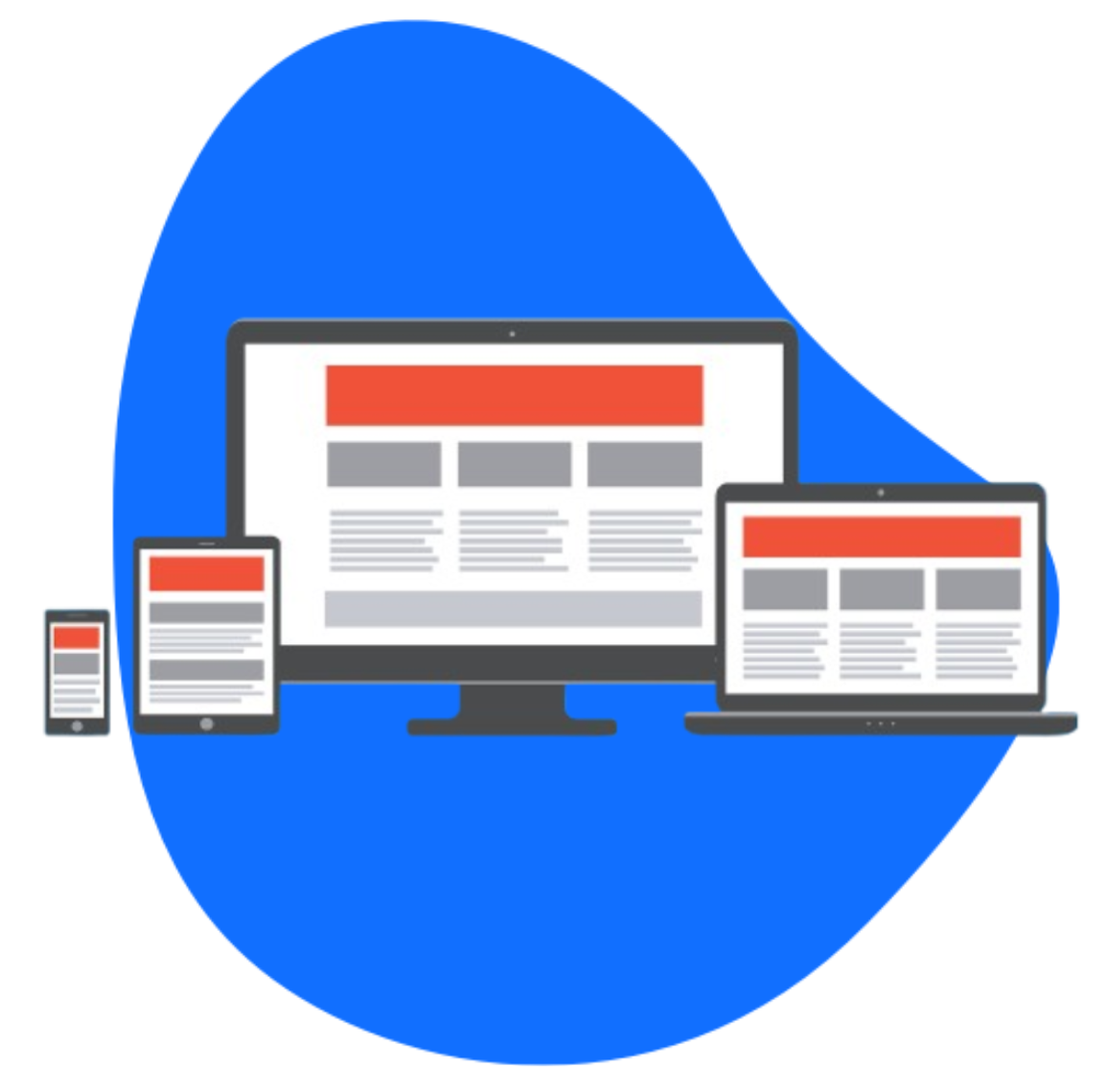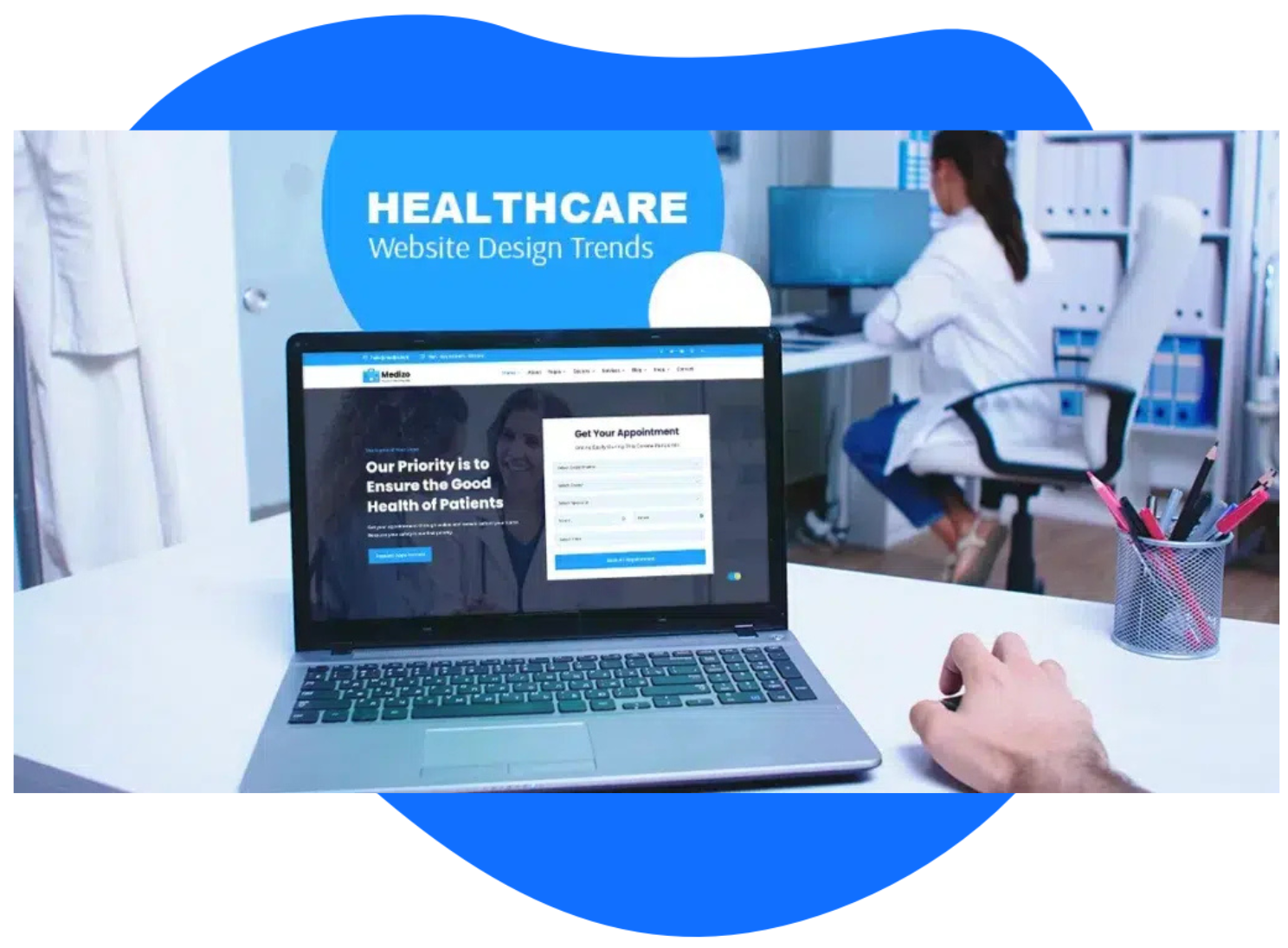Launching a new website in 2026 can be an intimidating task for a small local business focused on brick and mortar sales. It may be something entirely new for the current team at a midsize business running on a legacy website. For most small to midsize businesses the first thought that comes to mind with a new website is – how much does a new website cost?
Setting a budget for your new website should be thought of as an investment. The more you invest in a quality team and strategy, the higher the likely return.
Before you search for a website quote, you’ll want to be able to answer some basic questions about the end goal for your new website, and who it should be designed for.
- How do you want new customers or prospective clients to use the site?
- How do you want returning customers to use the site?
- How will your employees use the site?
- How will your business partners use the site?
- Will you be selling any items or services directly on the site?
At the time of this article’s publishing (2026), websites built by a professional web design company, with a team of three or more team members, usually cost between $15,000 – $50,000.
In this guide we’ll cover:
Determining the Scope of Your Website
How many hours the overall website project will require comes down to three major factors
The largest price point of the total project cost will be the expected hourly commitment from the team. Most projects, and particularly those with fixed bids, will estimate the hours required to complete a given task at the mid to high end to avoid cost overages. Individual team members will often have different hourly rates based on experience, skill sets, and sometimes availability.
In general an experienced agency will charge more per hour for web design and development. Consider, however, that a less-experienced agency or team may need more hours total to complete the project to a satisfactory level.
Business Tip:
Review the agency bios of the team members that will be involved on your project. Look not just at general experience, but also any particular skills they may specialize in (ex: illustration, SEO, UX testing). Ask your agency for background on previous projects they worked on, and in what capacity.
A common misconception amongst smaller clients, such as small businesses and nonprofits, is that the cost of their website project will be determined by two straightforward processes: design (the front end) and programming (the back end). While these processes certainly are a major part of building and launching a website, there are additional considerations that can have a huge impact on the website project process.
How many hours the overall website project will require comes down to three major factors:
1. Complexity
The amount of features and unique business requirements that need to be integrated into the website build. More complex web projects will require more design and development hours.
Variables to consider:
- Complexity of website navigation (what do people need to access?)
- Marketing requirements like persona targeting, company branding, product branding
- Custom visual design like animations, video, illustrations, or collages
- Complex user interfaces or page layouts with large amounts of content/data (ex: eCommerce)
- Integration with offsite or offline databases
2. Functionality
The number of unique tasks your website will need to perform. Ecommerce and customer accounts are typically the most time intensive tasks.
Variables to consider:
- Number of products (eCommerce)
- Variety of products (eCommerce)
- Amount of product details (eCommerce)
- Customer/member accounts
- Booking or scheduling
- Content types – ex: portfolio, blog, case studies, team, resource center
3. Size
The amount of effort needed to create pages and content for the website. This will be determined largely by how much time needs to be spent on original content and design, and how much can be replicated across the website.
Variables to consider:
- Overall number of web pages
- Number of page templates needed (ex: product page, resource page, gallery page)
- Amount of original content and copywriting needed
- Amount of original media needed (may not be available service from web agency)
- Amount of automation allowed (ex: page content generated from product data and dynamic built-in logic)
Business Website Price Range Guide for 2026
Understand the capabilities and compatibility of one another
Who Will Be Building the Website?
The type of team you select to build out your website will be largely determined by your budget. Most agencies will start projects at a minimum of $10,000 – $15,000 dollars. If your budget is less than this, you will most likely have to choose a freelancer or inexperienced agency. It certainly is possible to find a good bargain at a lower budget level, and receive a functional end product. However, in most cases, the less you have budgeted for the project the more likely you will run into issues with quality, efficiency or timelines.
Think of a new website like a home renovation. You may find cheaper contractors to do the work, but there is likely a reason they are cheaper. Sure they may get the job done, but there is a higher chance they may have inexperienced team members, regularly cut corners, use inferior/outdated products, or will incur additional future costs as a result of their low quality workmanship.
Below is a summary of what you can typically expect to receive at common web design project budget ranges. Pricing shown is for a standard business website for a small to midsize company (no ecommerce). Estimates and examples for website project budgets in 2026.
Project Budget Range: $1,000 – $5,000
Typical hourly rate: $50-$100
Typical Project Team: Individual Freelancer
What You’ll Get for the Money
Most often a one person shop. An individual freelancer, possibly from another country, who is a jack of all trades and master of none. Will often move quickly to complete a generic website, or one-size-fits-all solution.
Do your research and review the vendors work experience for reviews (if available) and past projects similar to your own. Ask if they outsource their work, and if they have any references.
- May use a basic template, or less comprehensive website platform like Wix, GoDaddy or Squarespace.
- Usually will not include a strategy for marketing, design, or content.
- Typically will involve very basic SEO, or on the flip-side – black hat methods of SEO for quick, but temporary rankings.
- Little room for customization. Integrated company data may break, or slow down the website.
- May require more communication as you “tell them” how to build the website.
Business Tip: If you have more time than money it might be best to DIY and create your own basic website. It’s not difficult to learn how to use WordPress or something like SquareSpace to get a website up quickly to serve as a placeholder until you can budget for something more professional.
Expected deliverables at this price range
- Fixed bid pricing
- One to five page website using a basic template
- Basic design customization (colors, module layout, sliders)
- Stock images from a free or low-cost stock image website
Project Budget Range: $5,000 – $10,000
Typical hourly rate: $100-$150
Typical Project Team: Freelancer or 1-2 person agency
What You’ll Get for the Money
Most often this is also a one person shop, either a freelancer or a fledgling agency. You may have a second person on the team who specializes in one area of design or development (ex: SEO, graphic design). At this price point that second person is likely to be outsourced.
Since you’re hiring a very small team of 1-2 people they aren’t going to be great at everything. However, compared to the sub $5k budget range the final product may be of higher quality with multiple experts.
- More likely to include some elements of website strategy (marketing, social media, content, branding, etc.)
- Likely to have basic SEO offering, and inclusion of researched keywords in metadata and page content.
- May offer a basic selection of options for template design
- Will likely have an established process for design and development
Business Tip: Find out the skills that an agency or freelancer of this size excels at. If those skills are related to your primary goal for a new website (better brand appearance, better data visualization, search rankings and traffic, etc.) then it may be a good fit. Generally speaking, a freelancer with great design skills is a good choice as most website visitors will quickly judge you by first impression.
Expected deliverables at this price range
- Fixed bid pricing
- Basic sitemap
- Basic website strategy
- Some level of SEO experience/ support
- 3-6 page templates
- Page builder template or build with advanced custom fields
- Blog functionality
- Projects, Case Studies, Gallery or other basic brand trust pages
Project Budget Range: $10,000 – $20,000
Typical hourly rate: $100-160
Typical Project Team: Reputable agency with 2-3 people
What You’ll Get for the Money
At this budget you should be able to find an agency with an optimized process. This means they’ll have a methodology and workflow that breaks down a website project into multiple phases to include strategy, design, development and training. The agency should also recommend a website solution that is based on client challenges and goals as opposed to “package” offerings.
Most of the time these are fixed big projects, if an agency at this level is experienced and knows they can’t estimate something accurately they should let you know. Sometimes that takes a paid discovery session, or alternatively you could hire them hourly to do the task (not recommended as they can go over your potential budget).
- Should have a comprehensive strategy for your new website
- Optimized user experience design for conversions
- Higher level of SEO offering. Could include strategy for building website authority, optimizing site for key search terms, and content strategy.
- Customized, unique and enhanced design options
- Optimized for user experience on mobile devices
Business tip: Ask for an itemized breakdown of deliverables with costs. If you’re an established company this should be the minimum price range for budgeting your new website.
Expected deliverables at this price range
Strategy
- Kickoff Meeting
- Website Strategy
- Informational Architecture
- Wireframe
- SEO Keyword Analysis (sometimes)
- SEO Copywriting (sometimes)
Design
- 1-3 Homepage Concepts
- 4-8 Page Designs (ex: Home, About, Services, Blog, Case Studies, Contact Us)
Development
- Theme Development or template (usually WordPress)
- Quality Control Testing
- Cross browser
- Cross device
- Website Training
- Launch
Project Budget Range: $20,000 – $50,000
Typical hourly rate: $140-200
Typical Project Team: Veteran agency team with 3-4 people and support staff as needed
What You’ll Get for the Money
An agency at this level will typically have a long history (usually 8+ years), and have well known companies as past clients. They should have good reviews on sources such as Clutch, Google and UpCity.
Your team will typically include a project manager, strategist, designer and a web developer. Your project manager acts as a point of reference for communication with the team and agency. They will assist with the organization of the project, answer questions, identify project risks, send updates, adjust timeline as needed, identify change orders, and oversee quality control. Expect to also be provided access to a project management tool (big red flag if an agency doesn’t use one) that manages all tasks, milestones, documentation, messages, links to documents, and uploaded assets such as logos and images.
If you’re a well established small to midsize business focused on growth, and looking to leverage a new website to that end, this is the budget range for you.
- Most agencies will offer fixed bid pricing at a given range (ex: $25,000-$32,000)
- Team members likely have 4+ years of experience
- Agency may have a niche within your industry
- Recommendations for digital marketing and growth post-launch (ex: content marketing, backlinks, media)
- Versatile design, development, and marketing offerings – advanced SEO, copywriting, advanced Google Analytics & conversion tracking, web design, web development and possibly paid advertising
- Custom websites and custom themes instead of templated offering (see: difference between a custom WordPress Theme and a Premium Theme)
- Cleaner code and plugin optimization for improved site speed and functionality
- Well researched and optimized user experience tailored for your business and customer base
Business Tip: Ask the agency to include only the “must have” features in the core project, and leave “nice to have” items budgeted as add-ons. This allows you to focus on getting a working site up quicker and at less cost while leaving a road map for secondary features to be added after the site launch.
Expected deliverables at this price range
Phase 1: Strategy
- Kickoff Meeting
- Website Strategy
- Informational Architecture
- Wireframe
- SEO Keyword Analysis
- SEO Copywriting
Phase 2: UI/ UX Design
- 1-3 Homepage Concepts
- 8-15 Internal Page Design
- Blog
- 2-4 Custom Post Types (ex: Case Studies, Resources, FAQ’s, Team)
Phase 3: Development
- Theme Development (usually WordPress)
- CRM/ Email Marketing Integrations
- Analytics Configuration/ Integration
- e-Commerce
- Quality Control Testing
- Cross browser
- Cross device
- Page speed
- Website Training
- Launch
Business Website Price Comparison Table
| Team Size | Individual Freelancer | Freelancer or 1-2 Staff | Reputable agency w/ 2-3 | Veteran agency team w/ 3-4 |
|---|---|---|---|---|
| Budget Range: | $1,500 – $6,000 | $6,000 – $15,000 | $15,000 – $30,000 | $25,000 – $60,000 |
| Terms | Fixed bid pricing | Fixed bid pricing | Fixed bid pricing | Fixed bid pricing and/ or hourly on some custom |
| Hourly | $50 - $100 | $100 - $150 | $120 - $190 | $160 - $250 |
| Hosting + Maintenance | $50 - $100/ mo. | $100 - $150/ mo. | $150 - $350/ mo. | $150 - $850/ mo. |
| Website Strategy | ||||
| Info Architecture | sometimes | |||
| SEO Keyword Analysis | ||||
| Wireframes | sometimes | |||
| Mockups | sometimes | |||
| Pages Designed | 1-5 pages using a basic template | 3-6 page templates simple design | 4-8 page templates | 8-16 page templates, complex UI |
| CMS | Template (usually WordPress) | Template (usually WordPress) | Page builder template or custom theme (usually WordPress) | custom theme (usually WordPress) |
| Copywriting | ||||
| Quality Control | ||||
| Website Training |
Strategy and Planning Costs
Doing it right the first time costs less
The following is an example estimate that breaks down strategy and planning costs on a higher budget website project.
Project Planning
Well developed planning phases will take roughly 30 hours at minimum. The larger the overall project the more hours can be expected in the planning phase to accommodate all the moving parts. This involves meetings, project management, scheduling, and research.
Discovery Phase
- Phone kick-off meeting (1 hour)
- Setup inside project management tool (1 hour)
- Competitor analysis (3 hours)
- Inspirational research (4 hours)
- Information architecture (4 hours)
Meetings and Consultation
- Wireframes (2 hours)
- Design Mockups and UI/ UX (6 hours)
- Design to developer hand-off (2 hours)
- Project management (8 hours)
- Bugs and demo site review (2 hours)
Strategy
Strategy for the website should be summarized in a deliverable document, and associated templates and tools. Typically this will take about 10 to 12 hours, but can vary with additional requested strategy elements such as content marketing or social media.
- Website Strategy (10 hours)
- User Research
- Content strategy
- Conversion strategy
- Content Gathering Template (1-2 hours)
SEO Strategy and Setup
This can vary by the importance of SEO for a client, number of products and services offered, and planned future use for the website. Total hourly range could be from a low of 20 hours to a high of 70.
- Keyword analysis (5-8 hours)
- Blog and long tail content strategy (5-10 hours)
- Meta title and meta description optimization (½ hour per page)
- Configure Google Search Console & Schema markup (2 ½ hours)
- Google Analytics install (½ hour)
- 301 redirect old pages to new (3-5 hours)
Website Cost 2026: Design and Development
The following is an example estimate that breaks down design and development costs on a higher budget website project.
Core Website Elements and Pages (UI/ UX Design + Development)
Development of the most prominent and mission critical pages on your website. In total this could be around 100-120 hours on a typical SMB sized project. All pages should progress in a sequential series of deliverable stages from wireframe to mockup to development site.
- Site Header/ Footer (20-23 hours)
- Homepage (25-30 hours)
- Custom Page Builder – to create additional future pages as needed (5-10 hours)
- About Page (18-25 hours)
- Service Page (18-22 hours)
- Contact Page (10-12 hours)
Other pages to consider that are not included under core pages:
- Careers Index
- Individual Job Listings
- Case Study / Projects Index
- Individual Case Study
- Blog Index
- Blog Posts
- FAQ
- Events
- Gallery
- Why Us
- Process
- Past and Current Clients
- Landing Page(s)
- Google Map Finder
- Resource Repository
- Thank You Page (for conversion tracking)
Add On Website Functionality
Expect to incur more development hours in the total project budget for add on and customized functionality. Some examples of these functions and settings are:
- Google maps integration
- Pop ups for lead generation or awareness
- Gallery
- Social media feed integration
- Multilingual translation functionality
- Logo carousels
- Interactive timeline (company history, etc.)
- Mega menu
- Gated content
- Resource repository
- RSS feed (for blogs)
- Internal site search
- CRM integration
- WCAG accessibility compliance
- GDPR compliance
Content Development
Content can be provided by either the client, agency, or a contracted third party. Ideally, both client and agency will play some part in content creation and review.
SEO Copywriting
A good copywriter can budget this in around 3-4 hours with up to two rounds of revisions for a non article page. If a client plays a larger role in this process it may delay the project.
Business Tip: Having a trusted copywriter on board at the beginning of your project is crucial for avoiding website launch delays. A copywriter will be used to working with deadlines, and the requirements of website design (ex: limited character counts, calls to action, SEO). An internal writer, or assigned staff member will often not have this experience or understanding of the project, which can lead to delays, or increased back and forth with the design team.
Professional Photography ($250-$450 per headshot or business image)
This task can be significantly more involved and costly for an eCommerce website that needs product photography. Service based companies, especially those that meet customers in-person, benefit from photography of their team members in action and headshots.
Business Tip: Ask your agency if they have a good photographer referral. Often they will have a preferred vendor from previous projects. The benefit here is the photographer has been vetted for you and will be in better sync with the agency in terms of style and direction.
Uploading Pages of Content
Expect to pay the standard agency rate at 1-2 hours per page.
Business Tip: Ask the agency for an itemized line item estimate on content uploading. For pages they’re not custom designing, this is something you can do on your own, especially if they are including CMS training in the project. This can end up saving thousands of dollars in agency fees.
E-Commerce
Adding eCommerce functionality to a website completely changes the scope of a build project. The commitment required can vary dramatically and depends heavily on which CMS platform is used, and the size of the product catalog.
A rough ballpark commitment is 75-100 total hours. This is in addition to the budget for core site pages (Home, About, Contact, etc.).
A typical eCommerce project includes:
- General store setup
- Payment methods setup
- Shipping configuration
- Taxes configuration
- Order testing
- Shop page
- Product category page
- Product post
- Products compare
- Up-sell on checkout
- Connecting store to 3rd party software (Fulfillment centers, Quickbooks or other types of Accounting Software, CRM such as Salesforce, Email/Marketing Platform, Inventory Management, Referral Program)
Business Tip: If you have relationships with higher value customers, or B2C clients, involve them in the strategy process when determining store user experience, account dashboards, and checkout functionality. Their insights can be valuable, and provided readily for no cost (or in exchange for incentives that don’t hit the website project budget).
Industry-Specific Websites
Certain industries require specialized features, such as technology websites that leverage content marketing tools like a comprehensive resource center, gated content, and seamless CRM integration. Check out what to consider for your industry: technology websites, education, startups, consulting, construction, nonprofits, real estate, and healthcare.
Quality Assurance Testing and Revisions
This process is important to spot needed revisions and to ensure full functionality for your website across browsers and devices. Ample budgeting for time here is important as the process can involve a lot of back and forth between the agency and your company. This is especially true if you are involving more stakeholders in the project (executives, sales teams, business partners, consultants, etc.)
A good rule is that quality assurance testing and revision should be budgeted at 15-20% of total development hours. If a project is estimated at 100 hours of development work expect another 15-20 hours dedicated to quality assurance.
Business Tip: Make sure you are 100% satisfied with page mockups before moving from production into development. Many firms will charge extra for design tweaks after the site is developed. These efforts can include further customization of the backend and tweaks to the appearance of the site on the front end.
Website Launch (1-2 hours)
The culmination of everyone’s hard work is the website launch. While not a time intensive process, this is a crucial moment when customers and the public will see the new site for the first time.
Typically involves:
- Move of site from development to production
- Placement of 301 redirects (these move users from the old website pages to new and preserve SEO)
- Change of DNS (point website domain name to the new server)
- Submission of sitemap to Google Search Console (so it can be indexed right away)
- Install SSL security
- Setup content delivery network (CDN)
- Allow search engine indexing for desired web pages (so users can find your site and content on Google and other search engines)
Costs to Maintain Your Website for 2026
It doesn’t hurt to ask about available special pricing or discounts
Agencies typically will include a website maintenance & hosting package that starts after the website is built. Companies may name them differently but virtually they’re all the same. The focus is on software updates and keeping your site secure.
Standard Maintenance Package ($80 – $250 per month)
- Hosting cost will vary based on site traffic volume and amount of plugins to maintain
- Monthly or weekly software updates
- Daily backups
- Licenses for premium plugins
- Monthly reporting
- SSL configuration
Premium Plugins ($50-150 per plugin)
Typically a one time cost for a plugin that adds functionality to the site
Domain Name ($15-$20 per year)
Registration cost for your chosen URL(s).
Business Tip: Never have your agency purchase your domain name and DNS under their account. If you part ways at some point, or they go out of business, it’s a pain to transfer as you’re not the owner with full control.
Additional Factors to Consider in Scope/Cost
Perhaps one of the largest factors on total project cost is the ability, bandwidth and experience of the client’s employees.
Clients should ask themselves:
- What can our team contribute to the project (content, etc.)?
- Who on our team will play a role in the project, and what will they do?
- Who will be involved in the website post-launch, and how much training is required?
Consider that the involvement of internal staff in the web design project is a two way street. With more involvement the need for agency hours may be reduced, and the final product may be more in line with your expectations. However, more eyeballs, nodding heads, and moving parts can lead to a longer overall development period.
Finally, another factor in cost is availability and workload. If a firm is super busy sometimes they may mark up their projects, and on the flip side if they’re not they may give a discount as they need new work.
Business tip: It doesn’t hurt to ask about available special pricing or discounts. This is especially true if you’re a non profit as some agencies offer a nonprofit discount of 10% or more.
Go through our website cost calculator to get a rough ballpark idea on project budget. Items that are already selected are considered “must have” foundational items for any business website build. “Should have” items might include things such as SEO keyword analysis and SEO copywriting. To get an accurate website cost estimate please contact us by clicking on “get a detailed quote” below the website cost calculator.
Website Strategy & Project Planning
Website Design Cost
Website Development Cost
Conclusion
Whether building a new website internally, with a freelancer, or through a Seattle web design agency, many professionals and companies underestimate the true amount of work that goes into a website project. Beyond the initial discovery process and building out pages, there are a good deal of hours that go into the less attractive, and behind-the-scenes tasks. Choosing an agency that has a solid methodology in place, and experience in handling the hurdles that can come into play during design and development, is crucial.
Learn more about the design and development processes we employ at Sayenko Design.
When it comes to budgeting there are a few rules that apply wholesale to any agency partnership.
- More website customization equals more budget
- More website content equals more budget
- Fixed pricing generally is a better value, and lower risk, than agreeing to an hourly rate
And, finally, if you do have to firmly limit your budget it is highly advisable to focus on having your website doing fewer things at a high level, rather than doing more things at a mediocre level. This means focusing on achieving the most important goals of your website, and leaving out the ‘nice-to-haves’ until you have more demand and/or available budget.
Your website should be a visual and interactive window into your company that serves customers and clients. To that end focus on their needs, and limit vanity add-ons or high end features you may find on the sites of your larger competitors.
A new website can make or break a business. Work within your budget and resource limitations, understand fully the design and development process, and partner with a trusted agency for a final product you can be proud to show off!
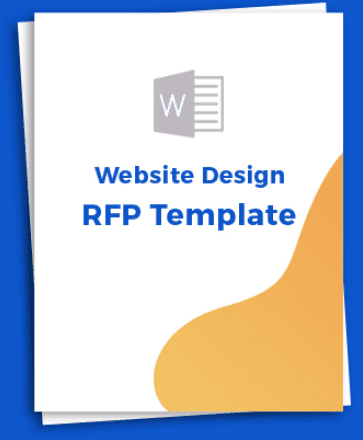
Ready to craft your own RFP?
Once you have a budget in mind, and an idea of the scope of your website project, the next step in selecting the right web design agency is to create a request for proposal (RFP). Make sure to read our guide on How to Write an RFP for Website Design that walks you through the process, and provides a working sample template to properly format your own RFP.

Get Your Website RFP Template
Fill out the form below to received the web design RFP Word template, easy as pie fill in sections. What are you waiting for? Get it in your inbox now!





